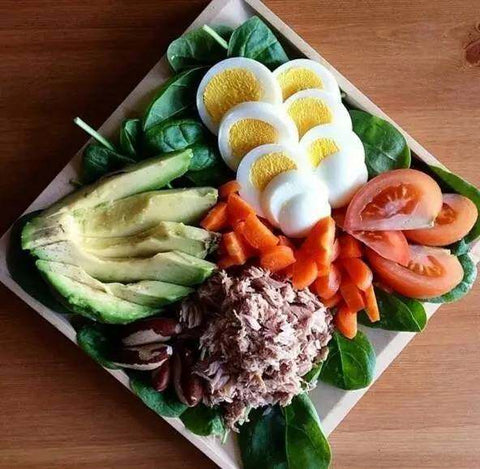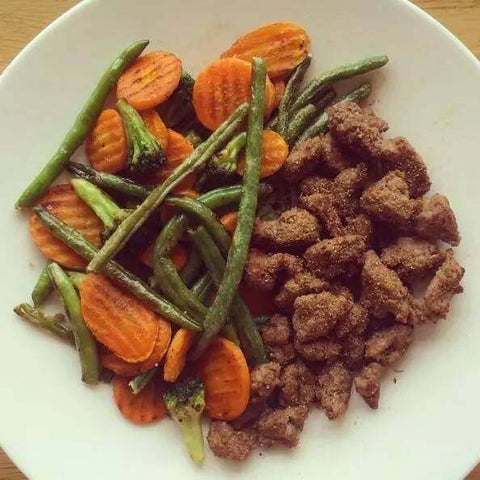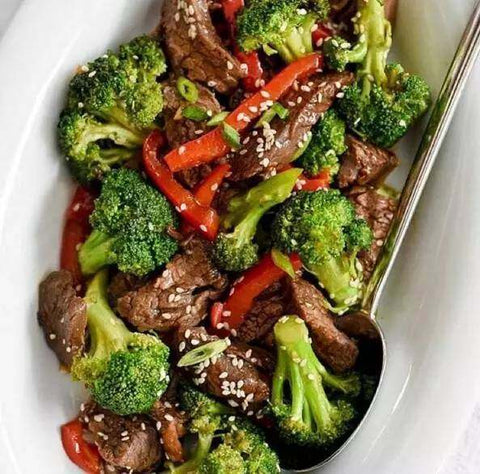
Although fitness has become an essential part of most people's life, but can clearly know the fitness rules, and have the effect, but really not many, especially in terms of diet!
Why is it important to say that diet is important? We often say "three points of training, seven points of eating", which is very correct. Diet is very important for exercise! Muscle gain and fat loss, different directions. For different purposes, dietary principles are naturally different.
Dietary principles
For people who need to lose fat, even harder training may ruin a meal of your favorite French fries, burgers, and sodas. Therefore, to reduce fat, you must control your calorie intake, refer to the GI value of the food, or even do it. Use a scale to weigh the food.
It is recommended to control your daily calorie intake to about 300 kcal lower than the calorie consumption, so that the weight (not fat) that can be lost in a week is 1kg. (Calories burned = basal metabolism + extra exercise consumption)

For people who gain muscle, especially thin people, if you want to change from a thin person to a strong man, the only thing you need to do is eat! If you don't eat enough, then the calories and nutrients provided to the body are not enough, and it is impossible to gain weight!
By the same token, as long as your daily intake of food calories is 300 calories higher than the calories you consume, you will also consume an extra 2100 calories ≈ 1 kg of body weight in a week.
Scientific matching
In addition to the amount of diet, nutrition distribution is also necessary. Let's make it clear that no matter whether we increase muscle or reduce fat, the proportion of carbohydrates is the largest, and protein is slightly higher than fat, which can also be equivalent.
Because there is enough carbon water to support the exercise consumption of muscle augmentation, which is also the reason why carbon water will be added before exercise. Because there is enough carbon and water, reducing fat can provide enough energy and limit muscle loss to the maximum.
That is to say, carbon water accounts for about half, or slightly more than half, and protein is equal to or slightly higher than fat. The specific proportion of increasing muscle is 5:3:2 of carbon water: protein: fat, and 6:2:2 of reducing fat( The specific proportion is slightly different due to each person's physical fitness and training amount. The proportion of carbon and water is about 55%, and protein and fat can be adjusted according to themselves.)
Among them, the sources of high-quality protein include:
Milk - easy to absorb, common, and most commonly used
Egg - the best high protein food in natural food, one whole egg with three egg whites
Skinless chicken breast -- high quality and high protein food, and the price is also more friendly to the people
Lean beef such as beef hind legs, steak - slightly higher in fat than chicken breast, but also a very good choice
Canned tuna - inexpensive and low in fat

Suggestions for high quality carbon water are as follows:
Oats - low caloric and GI values, slow digestion and absorption, long time of satiety
Fruits - all fruits are good choices, but they digest faster than carbohydrates such as oats, usually in the morning and before and after strength training
Vegetables - if you don't know what carbon water to eat, it's a good idea to eat more vegetables. The sugar content is lower than that of fruit, which can supplement dietary fiber more
Sweet potato or yam - slow digestion and absorption, strong sense of satiety
Brown rice is a compound carbohydrate with slow digestion and absorption.

High quality fat can be considered:
Almonds, walnuts and other nuts - high quality healthy fat source, but do not eat as snacks, but distributed to the dinner
Avocado is a healthy source of fat and has a high protein content
Olive oil - used as cooking oil, but the price is slightly higher
Cooking rules:
Boiled, steamed, followed by fried, and finally fried, do not fry.
If you can't avoid seasoning, it's mainly powdery, with less sauces.
Instead of salads, use Italian vinegar or low-fat yogurt.


